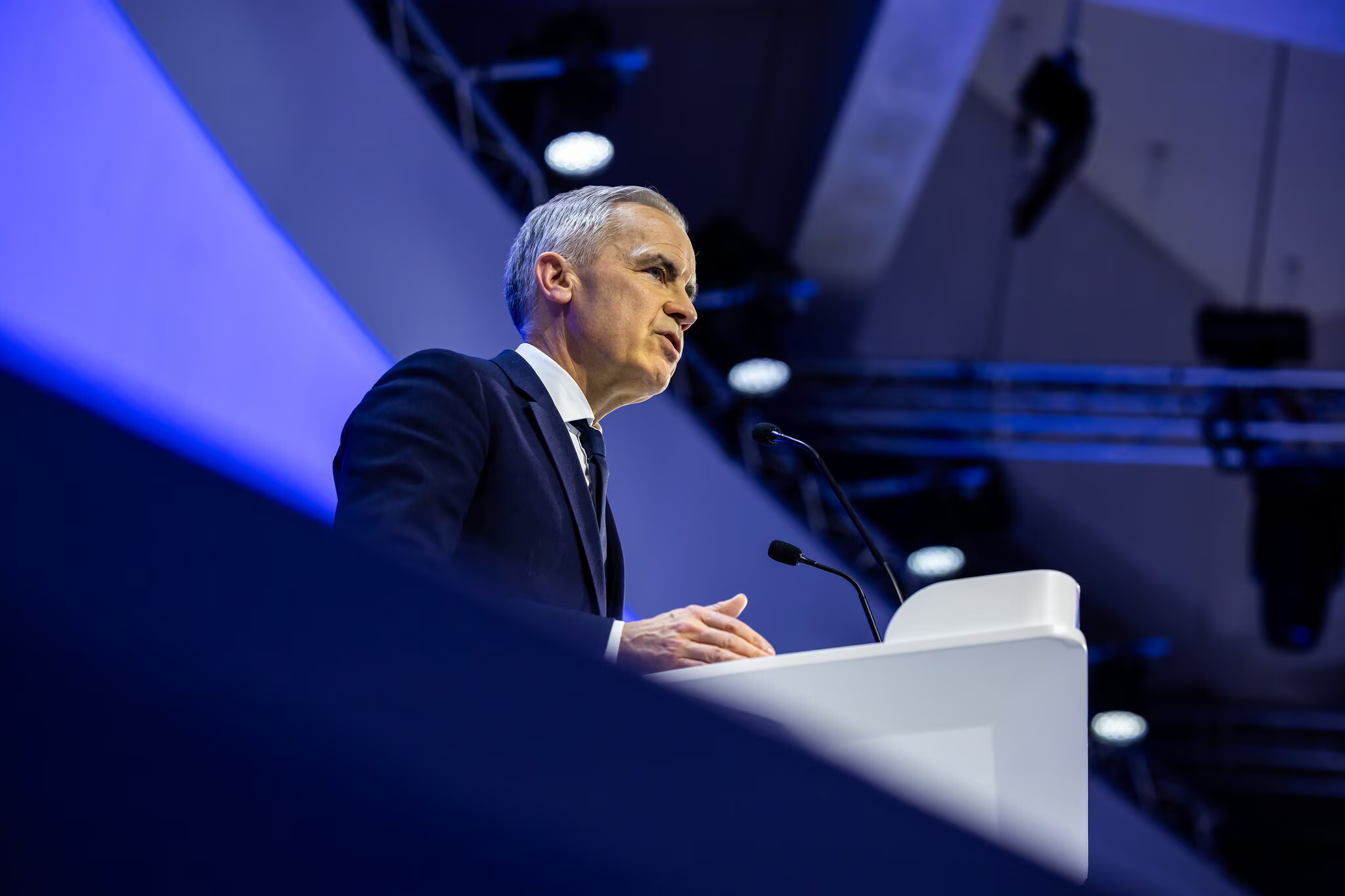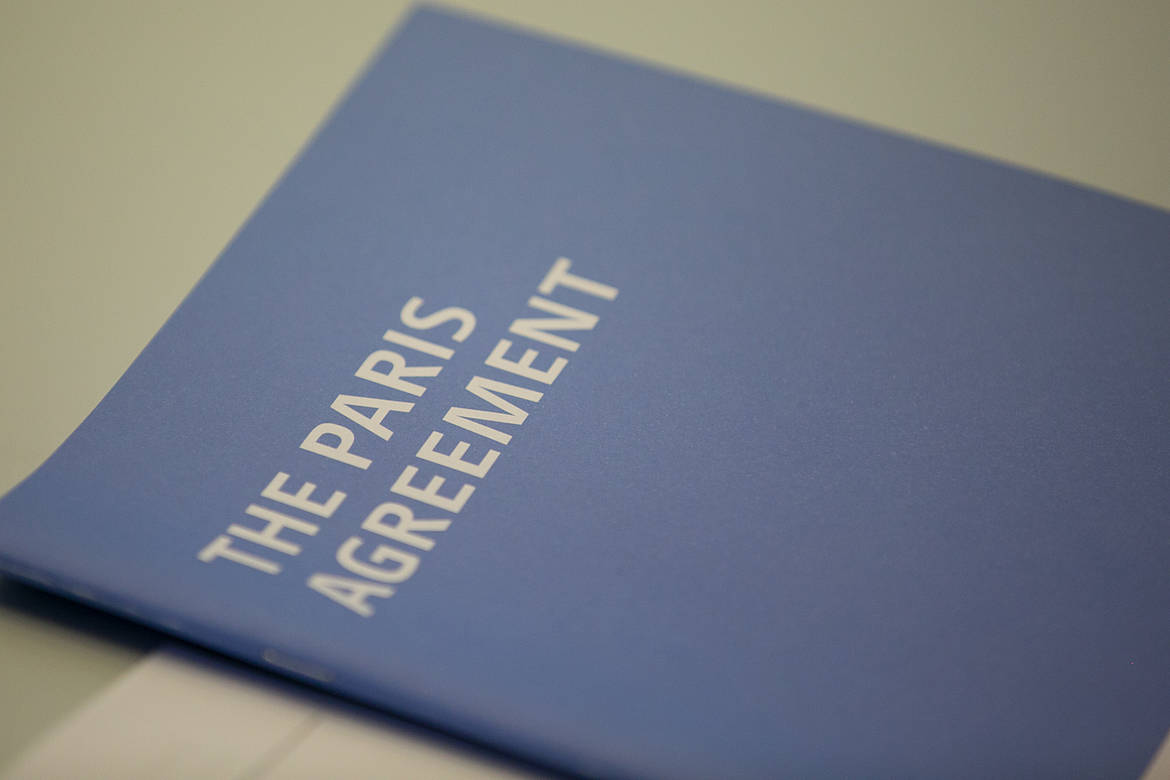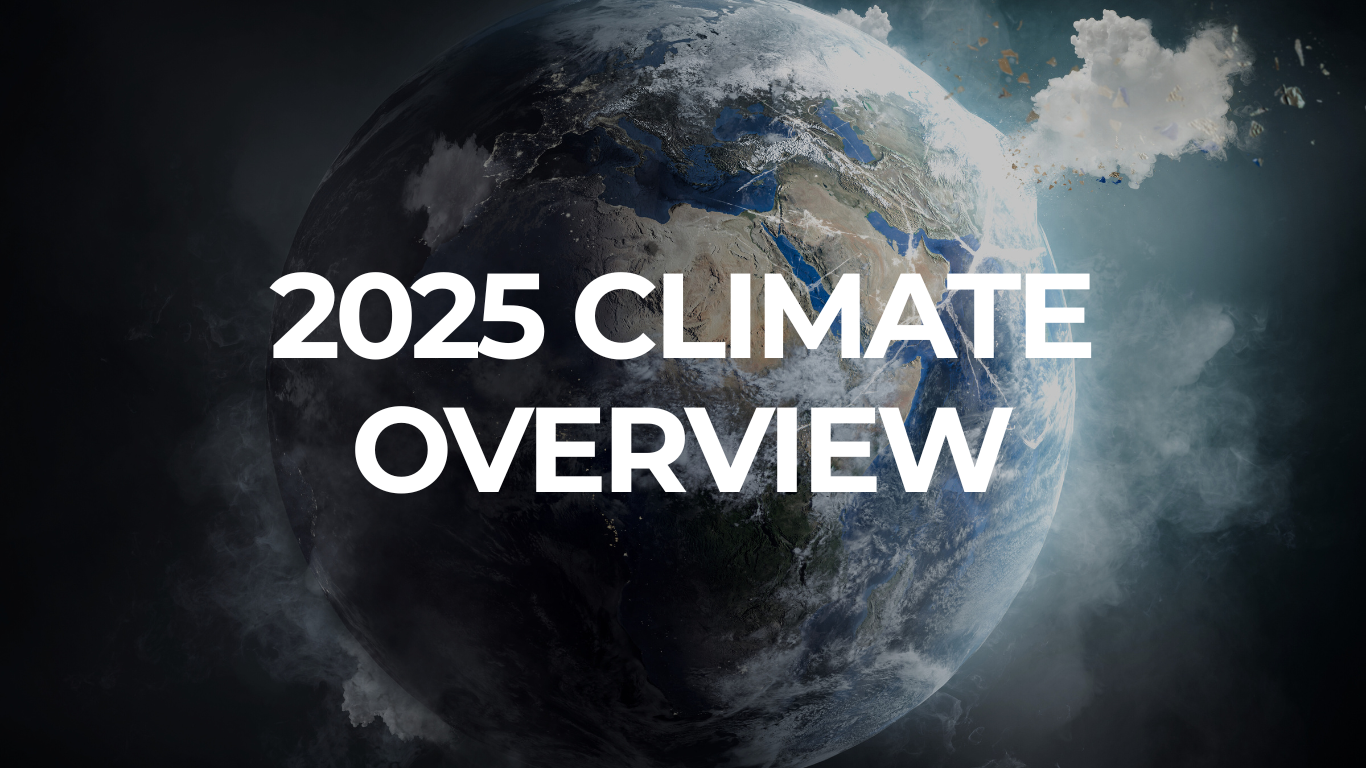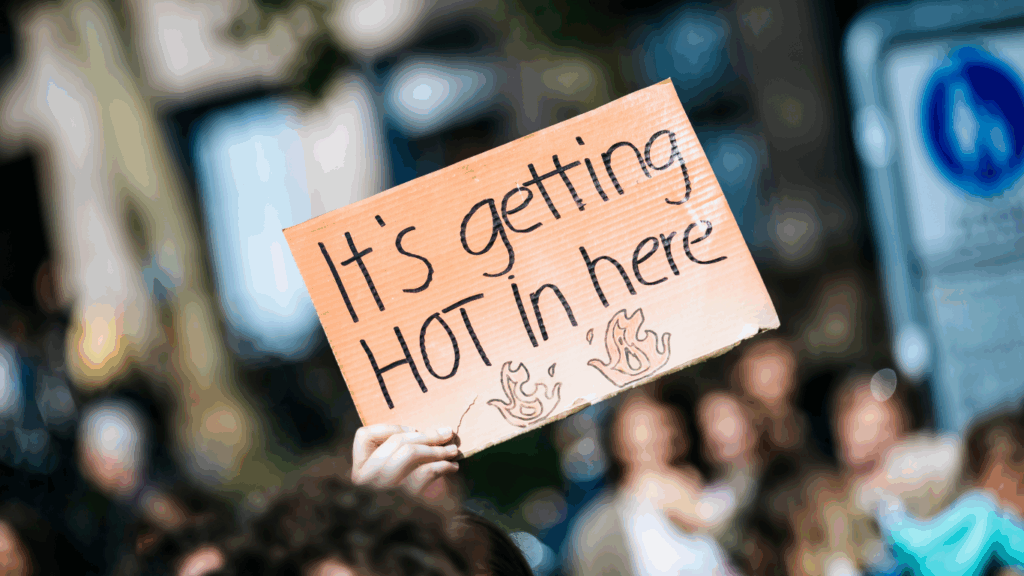A dialogue between Europe and Latin America to understand what is at stake in Belém
The countdown has begun. There are only two weeks to go until COP30, the UN Climate Change Conference, which will be held from 10 to 21 November in Belém, Brazil. A few days earlier, on 6 and 7 November, heads of state and government will gather in Belém to join Brazilian President Luiz Inácio Lula da Silva in giving political impetus to the more technical discussions of a COP that is taking place at a low point for the climate agenda since the Paris Agreement was adopted ten years ago at COP21.
In this context, the programme EU Talks, produced by the Delegation of the European Union to Argentina, brought together two leading voices in international climate thinking: Mariana Castaño Cano, founder and CEO of 10 Billion Solutions, journalist and climate analyst; and Claudio Lutzky, lawyer and expert in climate change and energy transition. The conversation, led by renowned Argentine journalist Luciana Vázquez, explored the current state of climate action, the challenges of multilateralism and the lessons learned from cooperation between Europe and Argentina and Latin America.
The episode, recorded at the Ecoparque de Buenos Aires and available in full on YouTube, offers a lucid and necessary reflection on what is at stake in Belém.
10 years after Paris, it is urgent to move from commitment to implementation
The Paris Agreement was described by Mariana Castaño Cano as ‘a historic act of collective maturity’: for the first time, all nations, both industrialised and developing countries, agreed to limit the increase in global average temperature. But a decade later, the reality is worrying: the commitments made still lead us to an increase of more than 2.5 °C.
‘The question is no longer what to do, but how to do it,’ she warned. COP30, she stressed, will be the moment to see whether countries are delivering on their promises when they present their new National Determined Contributions (NDCs). This will be a global test of consistency, in which science and politics must align to keep alive the Paris Agreement’s goal of limiting the projected increase in global average temperature from the pre-industrial era to 1.5 °C by 2100.
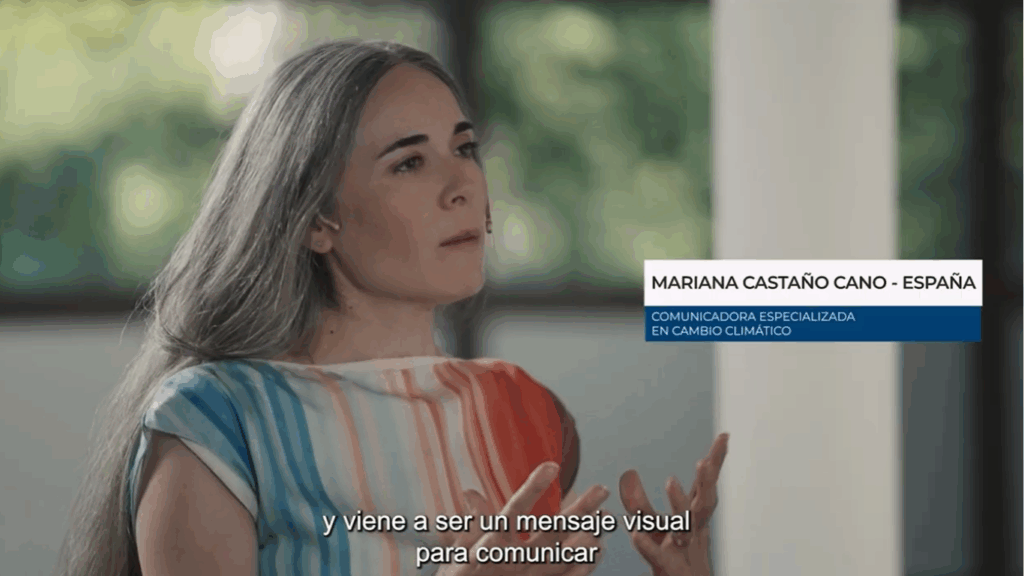
Europe: real progress, but also contradictions
Europe comes to the summit with tangible achievements: it has steadily reduced its emissions and aims to be carbon neutral by 2050. However, Mariana Castaño Cano pointed out that part of this decarbonisation has been achieved through industrial relocation to other regions. ‘The figures must be read with a critical eye,’ she said.
The European Union, she added, has learned that the cleanest energy is the energy that is not used. Energy efficiency, innovation and regulation, together with a more aware citizenry, have become pillars of the European model. But the continent also faces internal tensions: the energy crisis, energy poverty and social pressure are forcing a balance between transition and justice.
The Latin American challenge: cooperation, not competition
The conversation also positioned Latin America as a potential leader in climate action, thanks to its biodiversity and natural resources. ‘If the region manages to speak with one voice (the experts agreed), it can have a decisive influence on the global agenda.’
The challenge, however, is no small one: to build development within planetary boundaries and without repeating the mistakes of industrialised countries. A just transition in the region requires smart international partnerships, technology transfer and adequate financing.
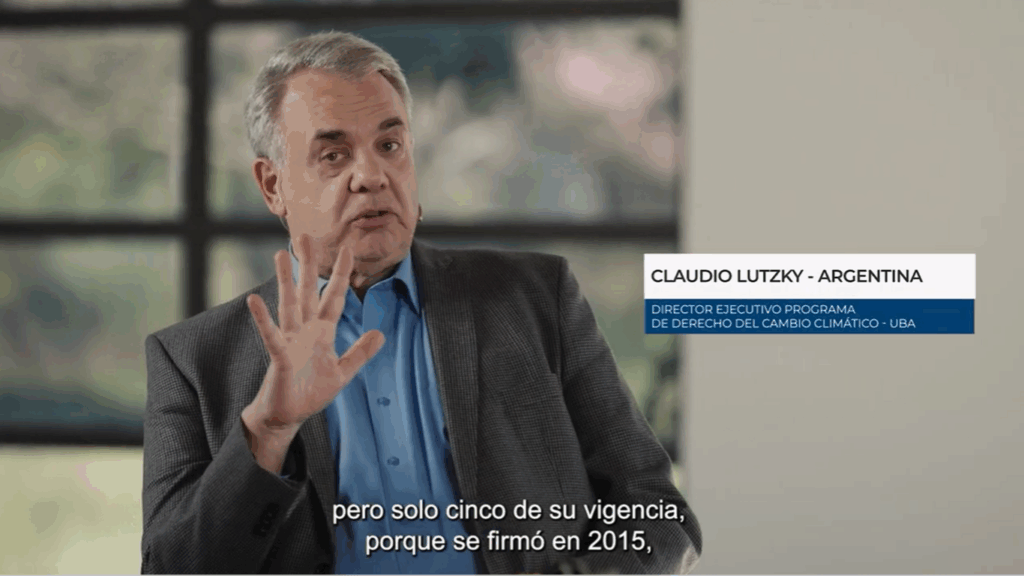
COP30: a test of maturity for the climate system
During her visit to Argentina, Mariana Castaño Cano pointed out that Belém will be much more than a climate summit: it will be a test of maturity for the multilateral system. In a tense geopolitical context, with denialist rhetoric and political setbacks in several countries, COP30 will test the world’s ability to maintain cooperation as a guiding principle.
Mariana Castaño Cano insisted that climate change ‘is not combated with charity, but with solidarity understood as cooperation with mutual benefits.’ The climate crisis, she said, ‘knows no borders: what is emitted in one country has consequences in all others.’
More than an environmental issue, a question of economic survival
Lawyer and environmental law specialist Claudio Lutzky offered a realistic view of the dilemmas of climate action, stressing that the challenge can no longer be seen as solely an ecological issue.
Claudio Lutzky warned that public policies in many countries continue to lag behind the magnitude of the challenge: “To a large extent, political leadership has not been up to the task. There are governments that have talked a lot and done little.‘ He also explained that distortions in energy prices or the lack of clear regulatory signals end up discouraging the transition to cleaner economies.
Faced with an increasingly polarised debate, he proposed abandoning ideological extremes and focusing on the practicality of solutions. ’Climate change has become a culture war. There are those who deny it and those who use it as an ideological banner. But that debate is useless. The important thing is to discuss development, investment and innovation, not dogma.‘
Claudio Lutzky insisted that climate action will only be sustainable if it is aligned with economic incentives and the creation of opportunities. ’We cannot expect societies to act out of altruism. Individual interests must be aligned with collective benefits.”
Finally, he stressed the need to strengthen the subnational framework (provinces, cities and companies) as the real engine of transition: ‘Even without major national decisions, many local governments and private actors are moving forward. This bottom-up dynamic can be decisive in sustaining global climate progress.’
A global message from Buenos Aires to Belém
The dialogue in EU Talks is a reminder that the climate future depends not only on governments and negotiations, but also on informed citizens, responsible businesses and committed media that keep the public conversation alive.
COP30 will not only be a technical negotiation: it will be an opportunity to renew confidence in global cooperation.
The full episode of ‘EU Talks – Towards COP30’ is now available on the European Union’s YouTube channel in Argentina.
Continue exploring climate stories and solutions
At 10 Billion Solutions, we are closely following climate action and global discussions leading up to COP30. If you are interested in learning more about these topics, we invite you to read our interview with Mariana Castaño Cano on COP30 and the article on mental health and climate change, where we explore the human impact behind the crisis.
Discover how our climate communication services and Academy training programmes help organisations, journalists and leaders communicate with clarity and purpose.
Don’t miss our upcoming publications: subscribe to our newsletter and join us on the path towards more effective and hopeful climate communication.

